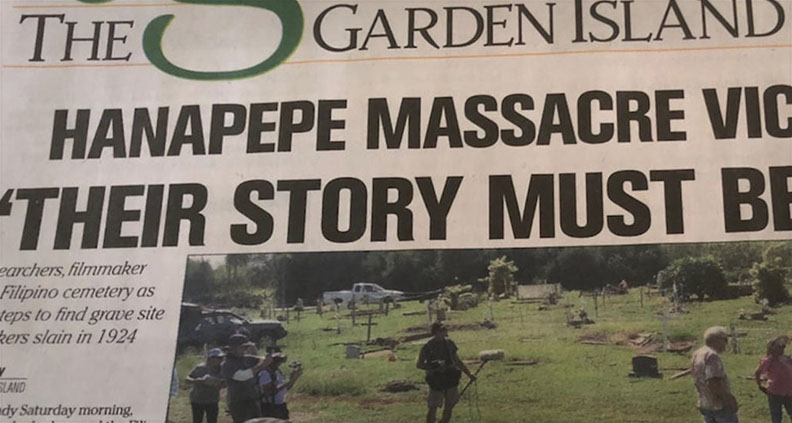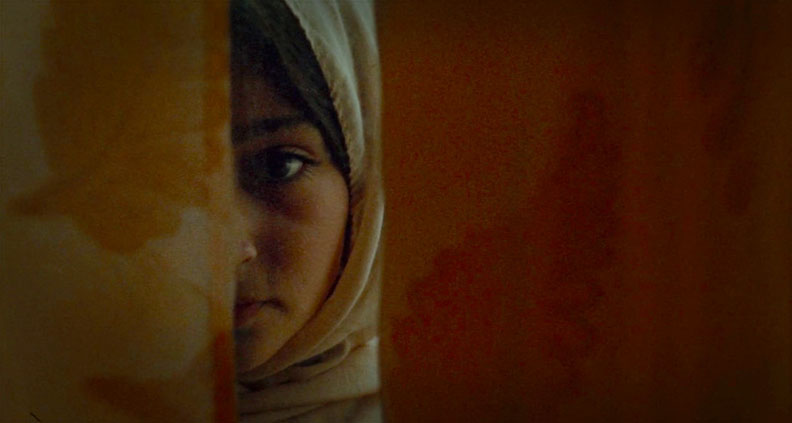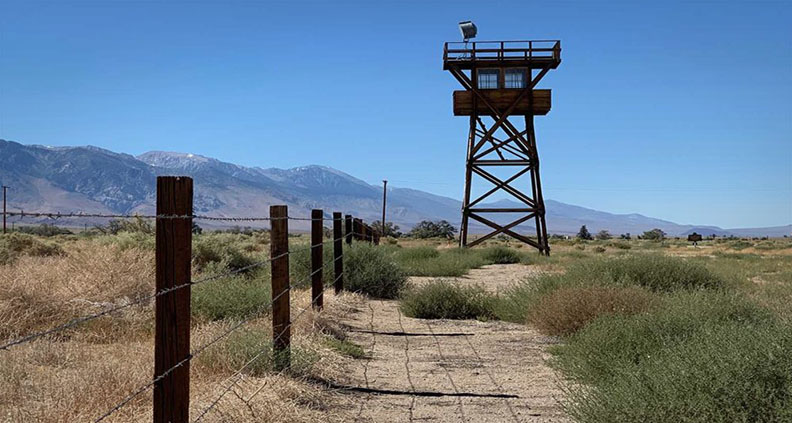Fiscal Spotlight: Three Projects About Secret, Suppressed and Forgotten Histories
Welcome to Fiscal Spotlight, a special monthly round up of projects—at all stages of production—working their way through Film Independent’s Fiscal Sponsorship pipeline. Enjoy!
***
It’s definitely underselling it to say that we’re living in extraordinary times. The world right now (and I believe this is a clinical term) is totally bugnuts. No one really knows what’s going on, how we got here, or where things will end up. But whatever the case, once the story of the great coronavirus pandemic of 2020 is written, it’s sure to include plenty of unfathomable tributaries and things that, right now in the moment, are impossible for us to see clearly or predict. History, after all, is an abstraction that only reveals itself completely over time—if ever.
The movies, of course, are a great way, even decades on, of unpacking, decoding and re-evaluating history, be it as antique as ancient Rome or the Old West, or as recent as the 2016 U.S. Presidential election. And the three projects we’ve picked to take a closer look at in this month’s Fiscal Spotlight all, each in their own unique way, address (to coin a phrase) the secret and/or forgotten histories of major socio-political eras and events—two in the U.S., one in Iran.
We never get tired of saying it: all Fiscal Spotlight subjects are currently taking advantage of Film Independent’s 501(c)3 nonprofit status to obtain institutional grants and tax-deductible donations via Fiscal Sponsorship. Here’s how it works:
This month’s include The Hanapepe Massacre Mystery 1924, Arezou and Pachuke. Learn more about each film and how you are able to support them below. These filmmakers need your support now more than ever—as does Film Independent itself, for that matter. Learn more about our April matching campaign here and help spread the word however you are able.
THE HANAPEPE MASSACRE MYSTERY 1924

Project type: Documentary Short
Project status: Development
Director/Executive Producer: Stephanie J. Castillo
Producer/Lead Researcher: Christopher Ballesteros
About the project: What happened on September 9, 1924? On the island paradise of Hawai’i, 20 people were killed in an explosive battle-turned-slaughter between police and striking Filipino sugar cane workers. This docudrama will tell its tale using documented sources, actors, illustrations and sound design, with a guitar-driven rock music score,and a first-person narrator who witnessed the tragic event. The film is intended as an introduction to this historic tragedy and will be an integral part of statewide, educational public forums planned for all screenings. The story starts with the narrator’s telling of the events that led to the battle; photographs of the town and illustrations will provide the imaging, while live actors in a costumes enact scenes of Filipino strikers sharpening their cane knives, which will be intercut with the scene of a cadre of 40 sheriff deputies arriving with rifles. The battle scene will be shot expressionistically, rather than literally. Camera positions from multiple viewpoints, and scenes shot with close-ups and extreme close-ups visualize the fear, the violence and the horror.
Meet the filmmakers: To learn more about The Hanapepe Massacre and how to support the project, click here. Director Stephanie J. Castillo is an Emmy Award-winning independent filmmaker, who has made documentaries for more than 30 years. This is her 11th documentary; her first one, Simple Courage: A Historical Portrait for the Age of AIDS, won an Emmy in 1993. Her works include social and cultural histories, biographies and mini-documentaries for nonprofit organizations. She is based on Kaua’i and has filmmaking partners in Honolulu, New York City and in other parts of the U.S. and in Europe.
AREZOU

Project type: Narrative Feature
Project status: Development
Director/Writer: Sophia Kiapos
Producers: Liz Cardenas, Chelsea Winstanley
About the project: During a treacherous winter in post-Islamic revolution Tehran, Arezou, an 11-year-old girl, finds herself amidst an unstable world filled with conflict. Arezou spends her days in quiet obedience, alternating between school, her sad home and a rug warehouse, where her broken-hearted and depressed father works. Journeying through the isolated warehouse, Arezou discovers remnants of the disbanded Iranian National Ballet Company and the beautiful Parvaneh, who she initially runs from. However, destiny brings them together again, and on a snowy night, as Parvaneh sews a pair of handmade ballet slippers, she introduces Arezou to the secret world of the underground ballet—one filled with beauty, creativity and joy, and an avenue for self-expression and processing her repressed emotions. She forms a strong bond with the passionate, surrogate mother figure and finds her voice in a world of restrictions.
Meet the filmmakers: To learn more about Arezou and how to support the project, click here. Filmmaker Sophia Kiapos is an Iranian-Greek/American film director, writer and producer based in Los Angeles. n 2016 she founded a collective for women in the industry called Female Filmmakers. Today, Sophia supports well over 6,000 women in 40 countries working in different facets of filmmaking. In 2017, Sophia was brought on by WhoHaHa and Universal Pictures to direct Elizabeth Banks in five comedic sketches for the Pitch Perfect franchise. Producer Liz Cardenas is a 2019 Film Independent Spirit Award nominee and has been a producer on eight narrative feature films.
PACHUKE

Project type: Narrative Short
Project status: Development
Director: Alexis Sterling
Writer: Kendra Arimoto
Producer: Kalilah Robinson
About the project: At a dance for Japanese Americans incarcerated during WWII, a quiet teen relies upon her zoot suit alter ego to win the girl. “Pachuke” [a slang term used by Japanese Americans when referring to Japanese American zoot-suiters of the 1940’s] is a musical tale of a quiet Nisei teen who calls upon her zoot suit alter-ego to boldly approach the girl of her dreams during a dance hall event held at the Manzanar War Relocation Center. Set entirely to Benny Goodman’s “Sing, Sing, Sing”—as performed by the Minidoka Swing Band—the piece is a musical and highly-choreographed imagining of the escapism required for the imprisoned youth to endure the dire circumstances of Japanese American incarceration during WWII.
Meet the filmmakers: For more about Pachuke and how to support the project, click here. Director Alexis Boozer Sterling is dedicated to bringing underrepresented voices to the forefront to expose, educate and empathize. Her work spans almost 20 years of theatre, film and digital video. Writer Kendra Arimoto is a Japanese-American writer, performer, activist and mother. Francis Ford Coppola as the winner of the 16th Annual American Zoetrope Screenplay Competition recently selected her feature screenplay, Starshine and Clay.
Learn more about Fiscal Sponsorship, including its benefits and eligibility requirements by visiting our website. See which projects are currently being supported via our Sponsored Projects page.
Film Independent Artist Development promotes unique independent voices by helping filmmakers create and advance new work. To support our work with a donation, please click here. Become a Member of Film Independent here.
Keep up with Film Independent…
(Header: the Iranian National Ballet Company)